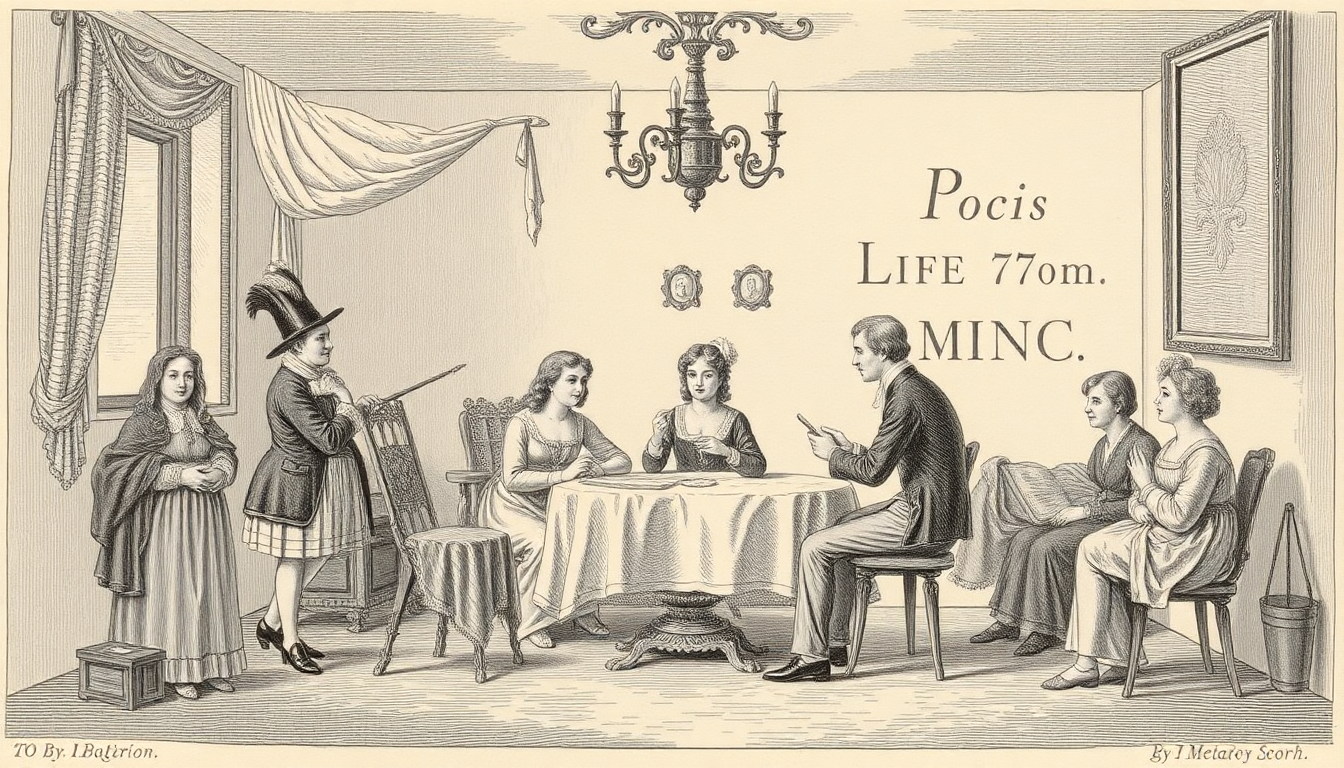The 18th century was a time of great social activity and entertainment for those who could afford it. From grand balls to intimate card games, people found various ways to amuse themselves and socialize. This chapter explores the diverse forms of entertainment and social gatherings that were popular during this period.
Balls and Assemblies
Balls were a centerpiece of social life for the upper classes. Mary Delany provides a vivid description of one such event in Dublin:
Lord Mountjoy made a fine ball for the Duke and Duchess of Dorset and their retinue, our house was among the invited people, and Monday was the day fixed on. By seven, (the hour named) we were all equipped for the ball; Mrs. Graham, Miss Granville, and Miss Usher called on us, and we all went away together, nobody was admitted but by tickets.
There were four-and-twenty couple, twelve danced at a time, and when they had two dances the other twelve took their turn. No lookers on but the Duchess and Mrs. Clayton, who thought it beneath the dignity of a Bishop’s wife to dance.
Card Games and Gambling
Card games were a popular pastime, often involving small wagers. Nancy Woodforde frequently mentions playing cards in her diary:
Friday. Played at Cribbage with my Uncle in the Evening. Lost sixpence.
Dudley Ryder provides insight into the more serious side of gambling:
After dinner we were all to ride out to my Lord Bridgewater’s Park. As we were going it began to rain and we turned back and did not go out again. Mr Birch was then for going home and as he and I were going out I don’t know how he had a mind to try my strength, fancying I was very weak, so we wrestled together, but I threw him six times following. He is indeed very weak that he can scarce move me. This striving ruffled me a little, made hot and put my spirits into a hurry, but it went off and we went to cards, sister and I and Cousin Billio and his wife. We played at whisk.
Theatre and Music
The theatre was a popular form of entertainment, with both professional and amateur performances. Nancy Woodforde describes attending a play:
After Tea Uncle and self took a coach and went to the theatre which was very full indeed. Saw “Hamlet” and “The spoil’d Child.” Mr. Eaton was in our Box and chatted with us.
Music was also an important part of social life. Dr. Claver Morris was particularly devoted to music, as his diary shows:
I had my sister Leigh and my Neece to see the waterwalk, meadows and afterwards at the Cathedral. Afterwards we went to the music meeting.
Outdoor Activities
For those in the country, outdoor pursuits were popular. Hunting and coursing were common activities. Nancy Woodforde writes:
Tuesday. Uncle, Self and three servants went out a-coursing. We had very good sport, coursed a leash of hares and brought home one. A dry day but very windy which made it rather unpleasant.
Social Calls and Etiquette
Visiting friends and acquaintances was an important social obligation. Mary Delany describes the custom:
D.D., Mary and I after church went visiting: found Mrs. Montagu, Mrs. Tracy, and her sister at home, and ended with Mrs. Donnellan, and left our names at four other places.
In conclusion, social life in the 18th century was rich and varied, particularly for the upper classes. From formal balls to casual card games, from theatre outings to country pursuits, people found numerous ways to entertain themselves and maintain their social connections. These activities not only provided amusement but also played a crucial role in maintaining social status and building relationships in 18th century English society.
